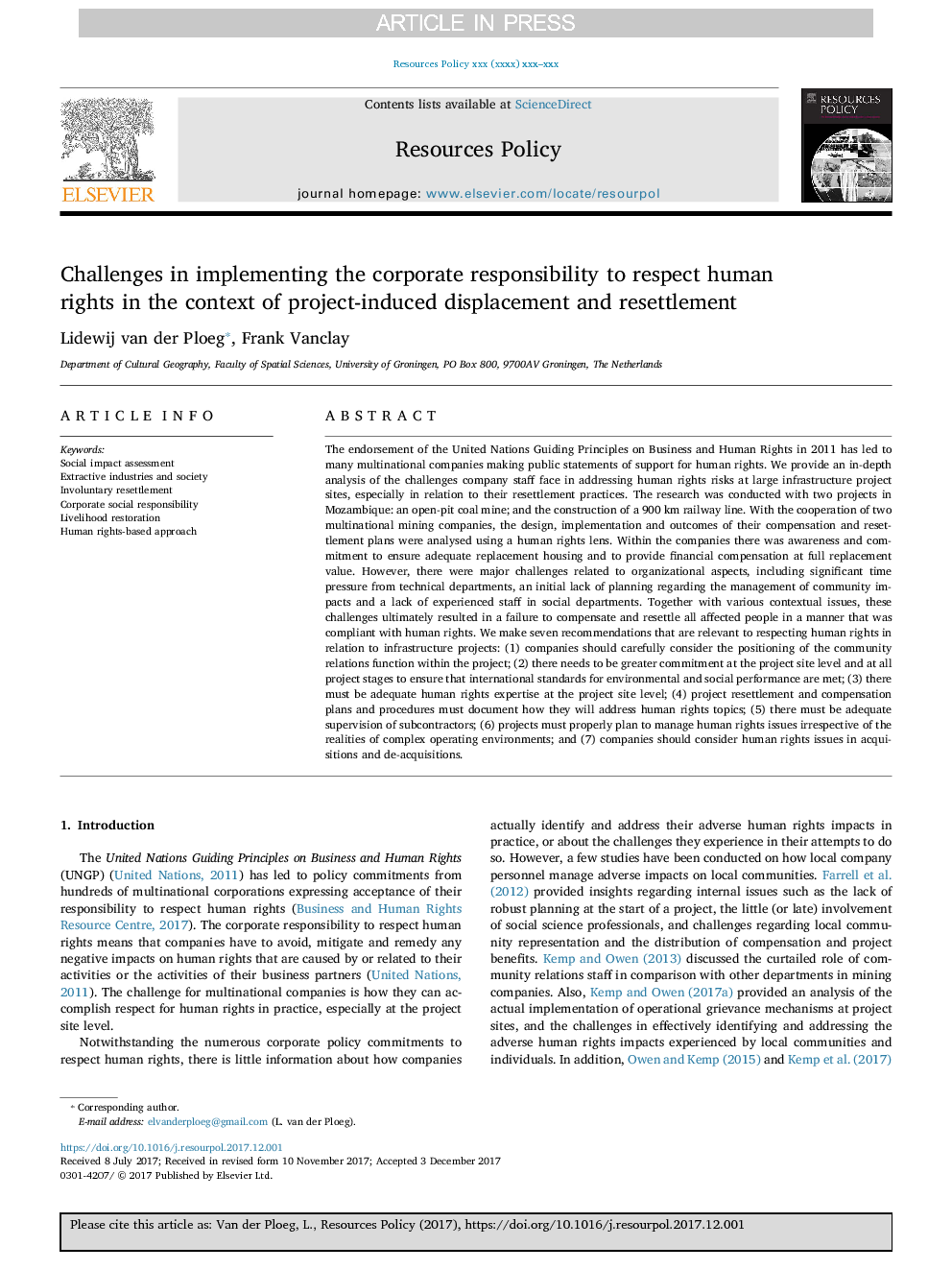ترجمه فارسی عنوان مقاله
چالش های اجرایی مسئولیت شرکت ها در احترام به حقوق بشر در زمینه جابجایی و استقرار ناشی از پروژه
عنوان انگلیسی
Challenges in implementing the corporate responsibility to respect human rights in the context of project-induced displacement and resettlement
| کد مقاله | سال انتشار | تعداد صفحات مقاله انگلیسی |
|---|---|---|
| 108480 | 2018 | 13 صفحه PDF |
منبع

Publisher : Elsevier - Science Direct (الزویر - ساینس دایرکت)
Journal : Resources Policy, Volume 55, March 2018, Pages 210-222
ترجمه کلمات کلیدی
ارزیابی تأثیر اجتماعی، صنایع استخراجی و جامعه، اسکان غیرمستقیم، مسئولیت اجتماعی شرکت، بازسازی معیشت، رویکرد مبتنی بر حقوق بشر،
کلمات کلیدی انگلیسی
Social impact assessment; Extractive industries and society; Involuntary resettlement; Corporate social responsibility; Livelihood restoration; Human rights-based approach;

